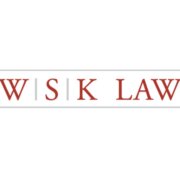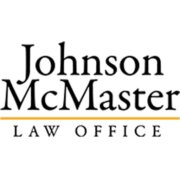Best Appeal Lawyers in Cambridge
Share your needs with us, get contacted by law firms.
Free. Takes 2 min.
List of the best lawyers in Cambridge, Canada
About Appeal Law in Cambridge, Canada
Appeal law in Cambridge, Ontario, Canada deals with the process of formally challenging the decision of a court or tribunal. If a party in a legal case is dissatisfied with the outcome of a trial or administrative hearing, they may have the right to request a higher court to review and possibly overturn or modify the original decision. Appeals are generally not opportunities to re-hear an entire case but focus on whether legal errors affected the outcome or if fair procedures were not followed. Appellate procedures are followed according to Ontario's court rules and relevant Canadian laws.
Why You May Need a Lawyer
Appeal cases are complex and typically require specialized legal knowledge. Individuals may need a lawyer for appeals in the following situations:
- Unfavorable verdicts in criminal, civil, or family court cases
- Belief that important evidence was ignored or improperly admitted
- Misinterpretation or misapplication of the law by the judge
- Procedural errors or unfair conduct during a trial or hearing
- Decisions by administrative bodies, such as landlord-tenant boards or immigration tribunals, believed to be incorrect
- Sentences or penalties considered too severe or unjust
A lawyer helps assess whether you have valid grounds for appeal, prepares necessary court documents, argues your case effectively, and guides you through strict timelines and procedures mandated by the appeals process.
Local Laws Overview
Appeals in Cambridge are governed by provincial law, mainly Ontario's Courts of Justice Act and related court rules. Appellate matters from provincial offenses or civil disputes are generally handled by the Ontario Court of Appeal, the Divisional Court, or, for smaller matters, the Superior Court of Justice. For federal issues, the Federal Court of Appeal may be involved.
Key local legal aspects for appeals include:
- Strict time limits for filing a Notice of Appeal, often 30 days from the original decision
- The need to base an appeal on errors of law, fact, or procedure, rather than just dissatisfaction with the outcome
- Requirement for detailed written arguments (factums) and possible oral hearings
- Limited introduction of new evidence, usually only allowed in exceptional circumstances
- Case-specific appeal routes, depending on the nature of the original decision
If you are unsure about the local laws and your rights within the appeal process, it is crucial to consult a qualified lawyer experienced with appeals in the Cambridge area.
Frequently Asked Questions
What is an appeal?
An appeal is a formal process to review and challenge a lower court's or tribunal's decision by a higher court, primarily on legal or procedural grounds.
Can I introduce new evidence during my appeal?
Generally, appeals are decided based on the evidence and record from the original case. New evidence is rarely allowed, except in special cases where it could not have been obtained with reasonable effort before.
How long do I have to file an appeal after a decision is made?
Time limits vary but are usually strict. You typically have 30 days from the date of the original judgment or order to file a Notice of Appeal. Extensions are sometimes possible but not guaranteed.
What happens after I file an appeal?
Once you file, you must submit additional documents, including your written arguments. Both sides may present arguments in writing and sometimes orally at a hearing. The appellate court will then review the case and make a decision.
Do I need a lawyer to file an appeal in Cambridge?
Although you can represent yourself, appeal law is highly specialized, with complex rules and procedures. It is highly recommended to consult or retain a lawyer with appellate experience.
What can the appellate court do in response to my appeal?
The court may grant the appeal and change the decision, order a new hearing, or dismiss the appeal and uphold the original decision. In rare cases, it may make other specific orders as required by the law.
Can all court and tribunal decisions be appealed?
Not every decision is automatically appealable. Some decisions are final, while others require permission (leave) to appeal. The type of original case determines the appellate route and eligibility.
What are the costs involved in an appeal?
Appeal costs include court filing fees, legal fees, and sometimes costs ordered by the court if the appeal is unsuccessful. Financial assistance or fee waivers may be available in certain circumstances.
What is the difference between an appeal and a judicial review?
An appeal is a statutory right to challenge a decision, usually on points of law. A judicial review is a court process to challenge the fairness or legality of a decision by a public authority and may have different grounds and timelines.
How long does the appeal process take?
The length of an appeal varies based on the complexity of the case and the court's schedule. A simple appeal may take a few months, while more complex cases can take a year or longer.
Additional Resources
If you need more information or support related to appeals in Cambridge, Ontario, consider contacting these resources:
- Ontario Court of Appeal Clerk's Office for information about appeal procedures
- Legal Aid Ontario for those who qualify for financial assistance with legal representation
- Law Society of Ontario Referral Service to help find a qualified appellate lawyer
- Cambridge Family Law Information Centre for help with family law appeals
- Community Legal Clinics for guidance on certain administrative appeals
Next Steps
If you are considering an appeal or have just received an unfavorable court or tribunal decision in Cambridge, here is what to do next:
- Consult a lawyer as soon as possible to review your case, as appeal deadlines are tight.
- Gather all documents related to your case, including judgments, orders, and transcripts.
- Ask your lawyer to explain your chances of success, the process, fees, and potential outcomes.
- File your Notice of Appeal within the prescribed timeline if you choose to proceed.
- Prepare for possible written submissions and an oral hearing.
Act quickly and get professional legal advice to protect your rights and interests throughout the appeal process.
Lawzana helps you find the best lawyers and law firms in Cambridge through a curated and pre-screened list of qualified legal professionals. Our platform offers rankings and detailed profiles of attorneys and law firms, allowing you to compare based on practice areas, including Appeal, experience, and client feedback.
Each profile includes a description of the firm's areas of practice, client reviews, team members and partners, year of establishment, spoken languages, office locations, contact information, social media presence, and any published articles or resources. Most firms on our platform speak English and are experienced in both local and international legal matters.
Get a quote from top-rated law firms in Cambridge, Canada — quickly, securely, and without unnecessary hassle.
Disclaimer:
The information provided on this page is for general informational purposes only and does not constitute legal advice. While we strive to ensure the accuracy and relevance of the content, legal information may change over time, and interpretations of the law can vary. You should always consult with a qualified legal professional for advice specific to your situation.
We disclaim all liability for actions taken or not taken based on the content of this page. If you believe any information is incorrect or outdated, please contact us, and we will review and update it where appropriate.











